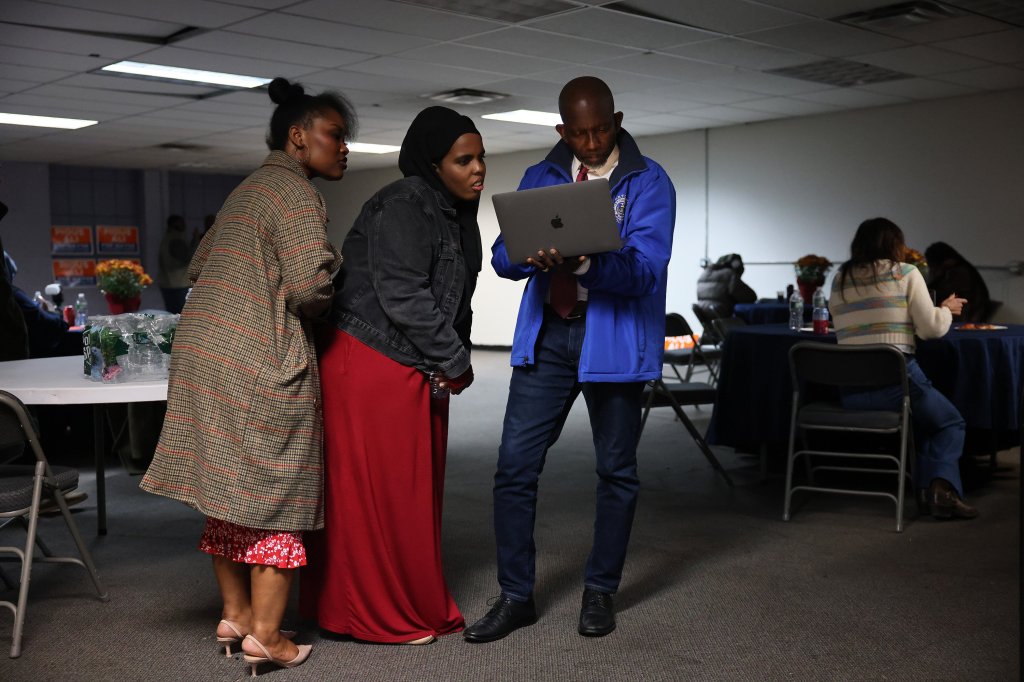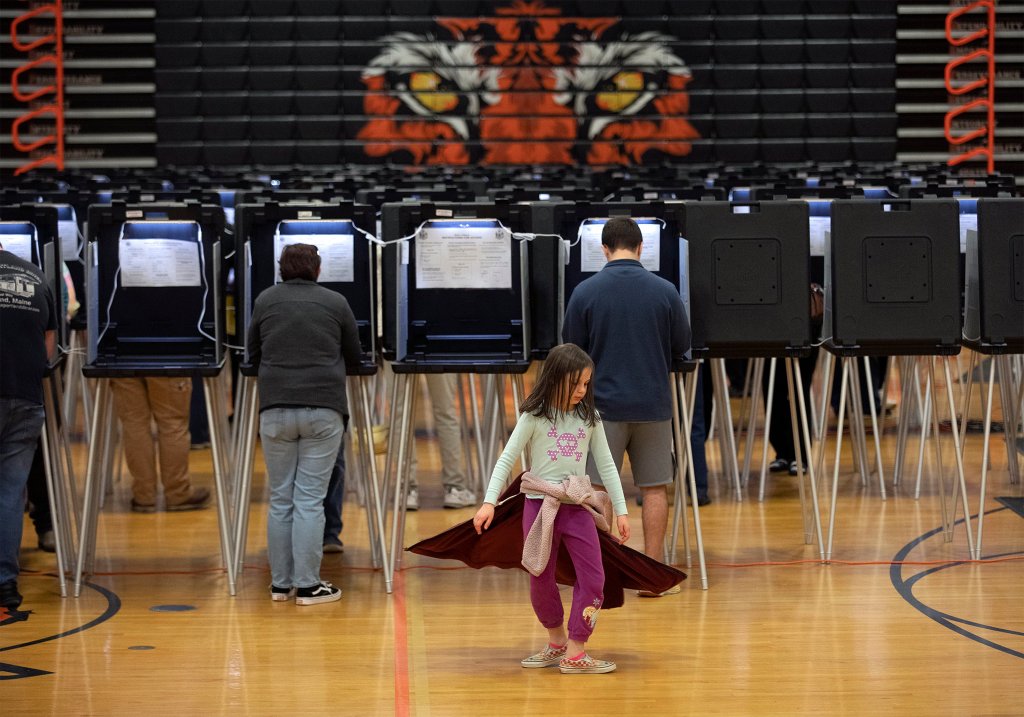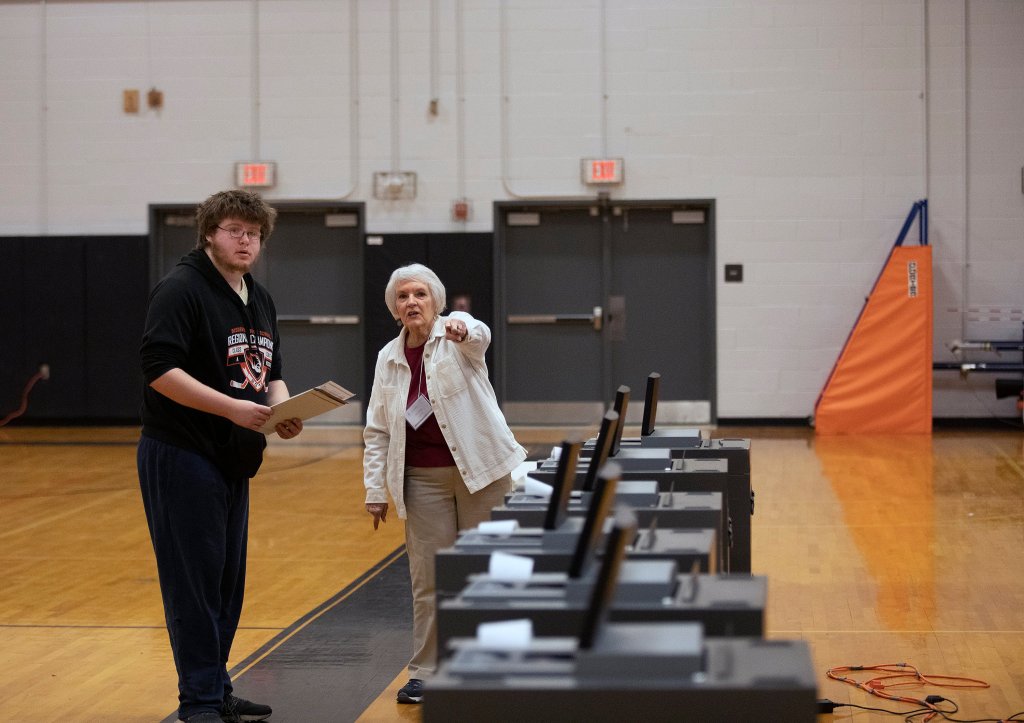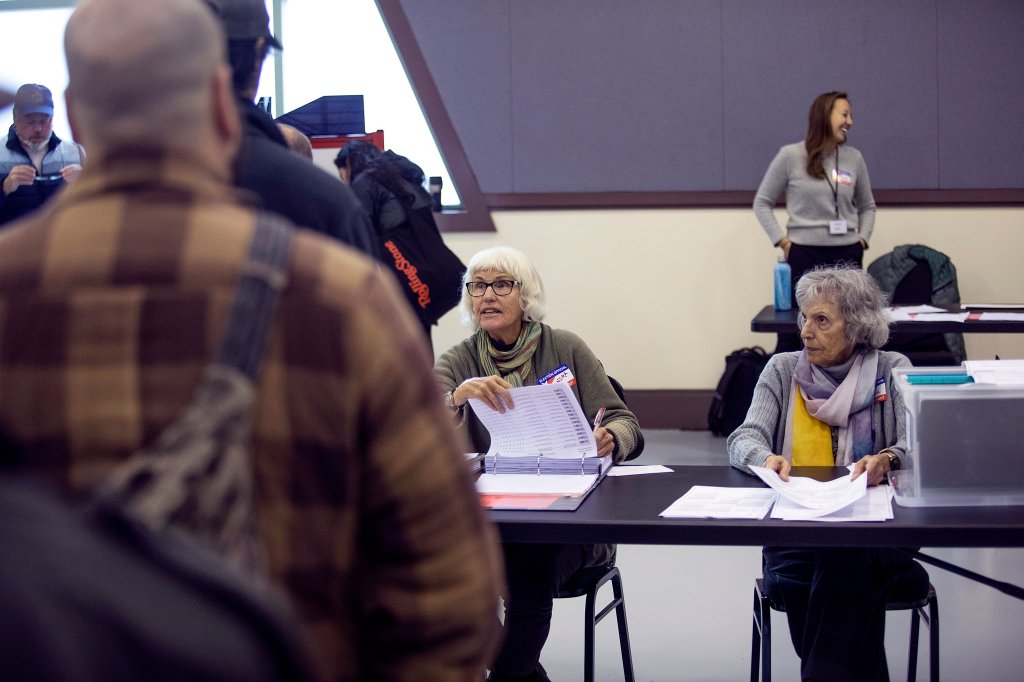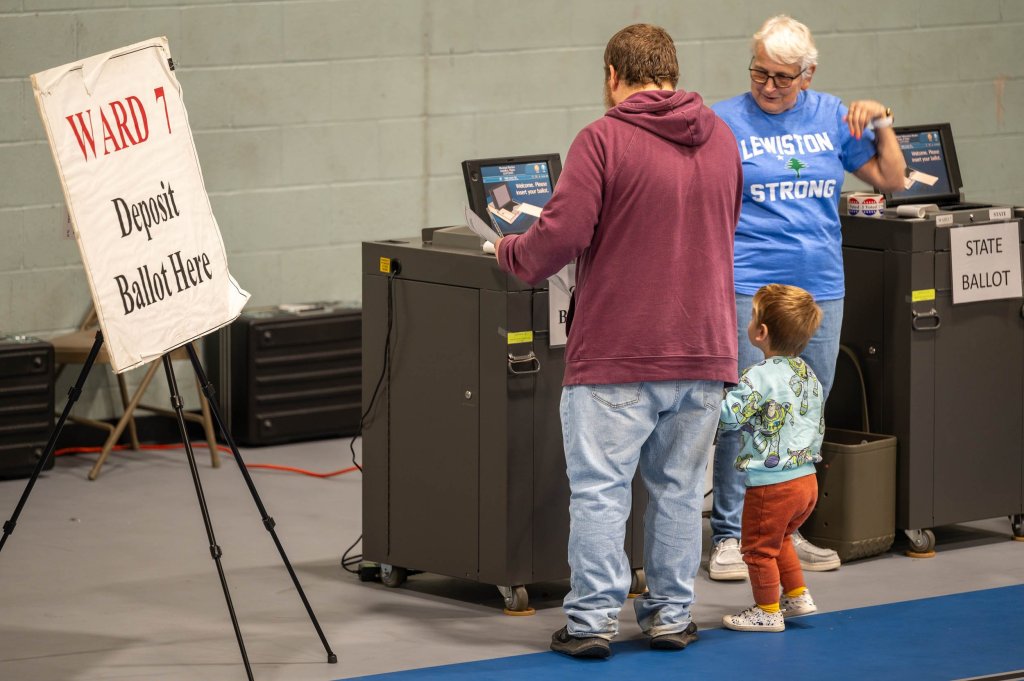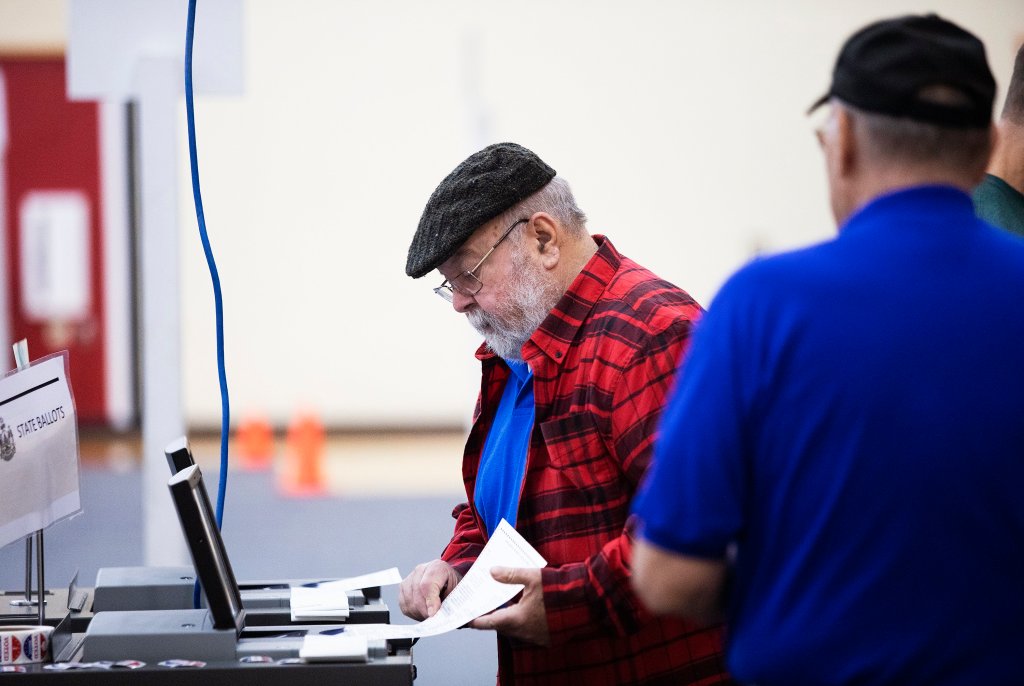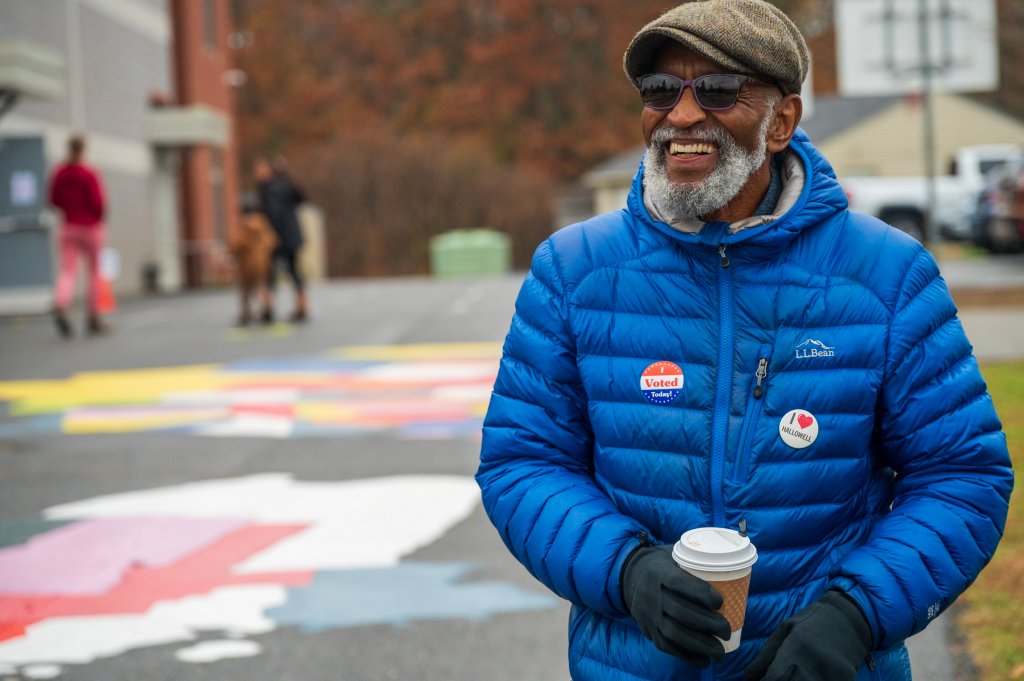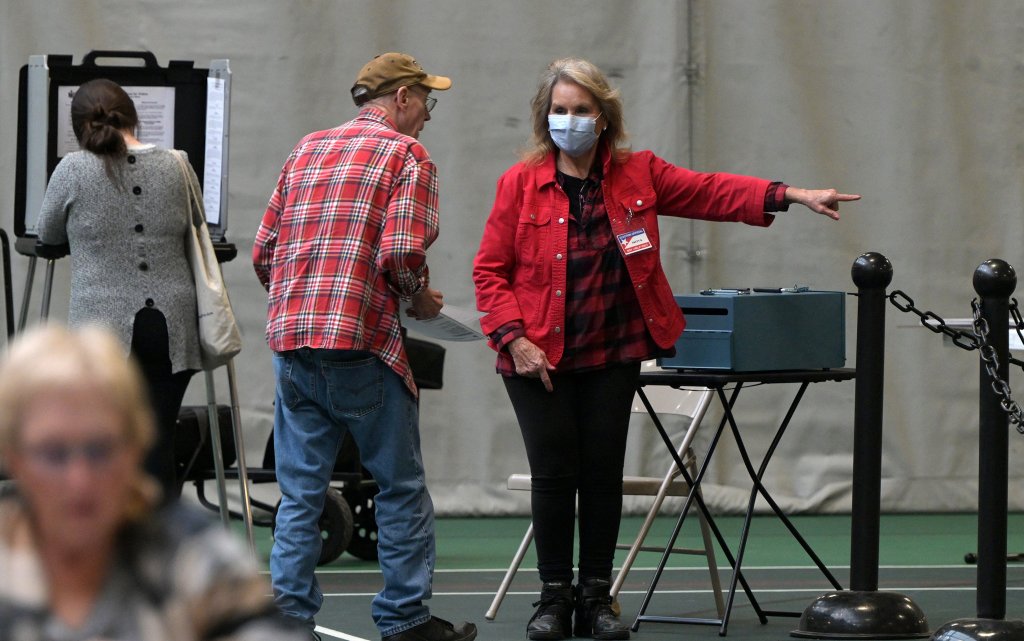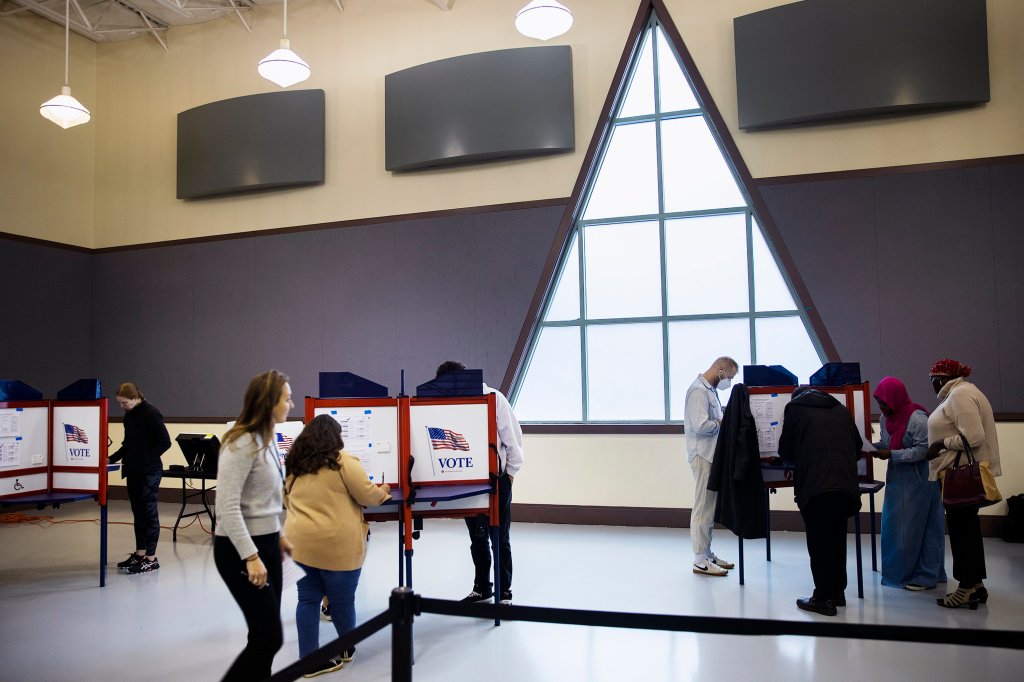Voters soundly rejected a proposal to replace Maine’s two utilities with a publicly owned power company.
With 68% of the vote counted, support for Question 3, to buy the assets of Central Maine Power and Versant Power, had garnered about 29% of votes statewide. “No” votes accounted for 71% of the ballots.
The Associated Press called the race about 9:45 p.m.
Critics said that because CMP is part of Avangrid, a subsidiary of Iberdrola, a large Spanish utility, and Versant Power is owned by Enmax, a Calgary energy company, they are distant, unresponsive and send their profits out of Maine. Opponents of Question 3 say buying the two utilities at a price tag of between $6 billion and $13 billion would result in burdensome debt just as utilities need to spend money to upgrade the grid to confront the impacts of climate change.
The question has drawn intense scrutiny and sparked debates for the last several months as campaigns for and against have dominated airwaves and print ads. Question 3 appeared with seven other ballot questions.
CMP said it’s ”turning the page” following the measure’s defeat.
“As we look forward, we must continue to modernize our grid to support Maine’s climate change goals, connect new renewable resources and electrify our communities,” the utility said in a release Tuesday night.

Lucy Hochschartner, deputy campaign manager and spokesperson for Pine Tree Power, speaks to the media at Arcadia in Portland after Question 3, which would have created a publicly owned utility, failed with voters on Tuesday. Gregory Rec/Staff Photographer
BJ McCollister, campaign manager for Maine Energy Progress, a group funded by Enmax, that fought the ballot measure, said Maine voters “took the time to learn about this expensive and risky scheme.”
“Question 3 presented itself as a simple solution to very complex issues and voters weren’t willing to take a chance on something as important as our state’s electrical grid,” he said.
Lucy Hochschartner, deputy campaign manager and spokesperson for Our Power, the group behind Question 3, said just after 10 p.m. that she was disappointed in the results, but that this was “just the beginning” for the movement.
“I came here excited to be working every day on this campaign because I am terrified for my future and I need a utility that that is going to be working for me,” Hochschartner said. “That would have been Pine Tree Power. It is not and never has been and never will be CMP and Versant.”
Hochschartner criticized CMP, Versant and the “cruelty” of a model that she said puts profits over people.
“These utilities put $40 million into scaring Maine voters and it took $40 million for them to get the outcome they wanted tonight,” she said. “It was always about serving their foreign shareholders, rather than Mainers, rather than their own customers. Not a single time in this campaign did CMP or Versant show up themselves to provide solutions or debate us or anything to show they care about their customers. That’s not their job and it never will be. I hope we see better from them but the system is fundamentally broken,” she said.
Hochschartner declined to comment specifically on results and the wide margin of loss until all the votes had been counted.

Al Cleveland, right, campaign manager of Pine Tree Power, talks with Rep. Art Bell of Yarmouth at Arcadia in Portland as results began to come in on election night. Gregory Rec/Staff Photographer
Willy Ritch, the Portland consultant heading up the anti-takeover campaign, said voters “did their research.”
Numerous forums around the state attracted voters who asked questions and carefully considered what Ritch called a “very complicated issue.”
Another utility-backed initiative also appeared to be winning. Question 1 would require voter approval for some public offices, as well as publicly owned electricity providers, before they take on more than $1 billion in debt. The measure, which was winning 66% to 34% with 60% of the vote counted, was initiated by Avangrid, CMP’s parent company, as a backstop in case Question 3 passed. The cost to buy CMP and the other investor-owned utility in Maine, Versant Power, is estimated to fall between $6 billion and $13 billion. Such a purchase would require ratepayers to take on considerable debt.
Earlier in the night, the clatter of air hockey and pinball could be heard over the thump of the bass at Arcadia, Portland’s combination bar and arcade, where Pine Tree Power supporters gathered for a Yes On 3 watch party. Just minutes after the polls closed, the atmosphere was energetic, with some supporters gathering at the bar, others clustered around the pinball and video game machines and a handful grabbing slices of pizza.
Emily Manter of Portland showed up to support Pine Tree Power, as the publicly owned utility would have been called.
“I think that our electricity, which everybody needs … there shouldn’t be a corporate entity profiting off that,” she said.
However, Jean Bingham, 65, said earlier Tuesday that she came to her South Portland polling station to vote against Question 3.
“I don’t think it’s in the best interest of the state and the residents of the state,” Bingham said. “Although it was perceived, to me, as helping citizens, I don’t think they did a very good job of putting forward all of their plans to be able to bring it forward at this time. I thought it needed more research. It took a while to read through what they were trying to present and what the effect would be.”
Joe Conway, 44, said he was motivated to vote “on pretty much everything,” including local school board races because he has school-aged children. Conway, who voted in South Portland, said he supported Question 3 because it’s “a huge opportunity to change the way utilities are managed.”
“I don’t think it’s a perfect solution, but I don’t think CMP is a solution either,” Conway said.
Secretary of State Shenna Bellows declined to make any “big predictions” on turnout but said she’d love to see 50%. During the last off-year election in 2021, turnout was 37%, but mayoral races in the state’s two biggest cities plus a full slate of referendum questions was expected to drive that higher this year.
“Eight referendum questions is unusual and certainly more than we have seen in recent years, but talking to wardens and poll workers, there haven’t been substantial voter confusion,” Bellows said. “People have done their research.”
BIG SPENDING
The owners of Maine’s two largest power companies have spent more than $37 million so far to defeat the question, including more than $26 million this year alone, according to campaign finance reports. Backers of Question 3 have raised and spent far less.
Maine Affordable Energy, the ballot question committee controlled by CMP’s parent company, Avangrid, has raised $23.7 million in its effort to defeat Question 3. About half was raised this year. The group has $360,000 in cash on hand. Most of its spending this year was on professional services such as graphic design and legal services, followed by social media and online advertising.
- ✓ Race Winner
- Source: Associated Press
Maine Energy Progress, the committee controlled by Versant’s parent company, Enmax, has raised $16.1 million – almost all this year – and spent $14.5 million. It has $1.9 million in cash on hand and has spent more than $7.4 million on TV ads, production and media.
Ritch said he didn’t see a “direct correlation” between spending tremendous sums of money and winning on Election Day.
“I think in the end the voters figured out what the truth is,” he said.
The leading backer of the referendum, Our Power, spent $1.1 million, including $588,000 spent this year. The group has raised $1.2 million and has just under $45,000 cash on hand.
Most of the money spent by Our Power has been on personnel and campaign staff, consulting, and independent contractor costs. Its largest donation – $150,000 – came from the San Francisco-based 128 Collective, which focuses on climate change policy. Contributions made in the most recent reporting period, covering most of October, were mostly small donations from individuals.
Staff Writer Hannah LaClaire contributed to this report.
Send questions/comments to the editors.







